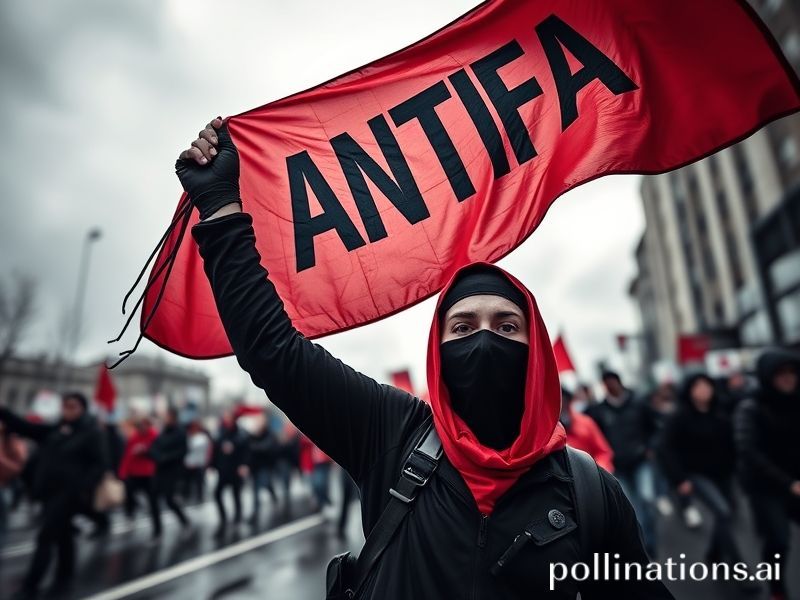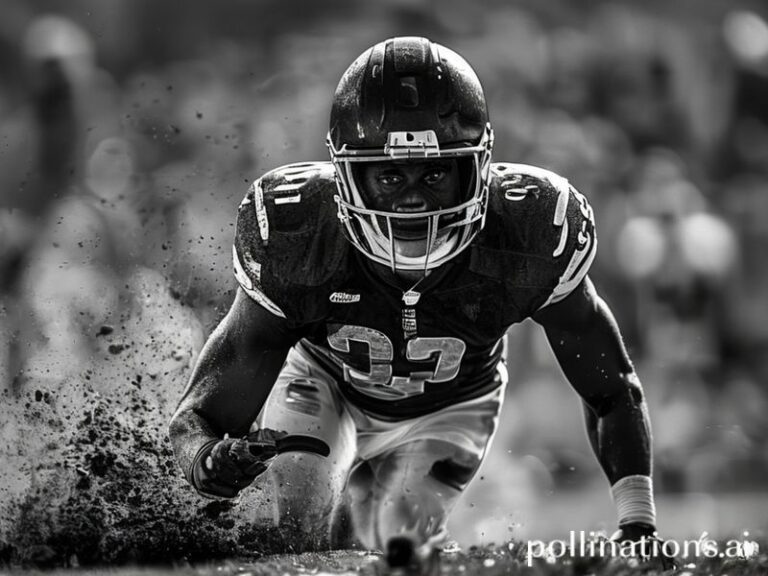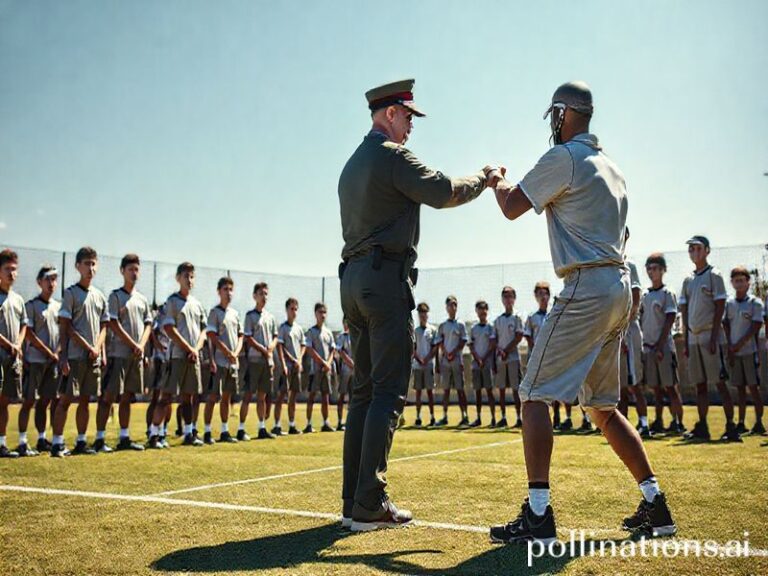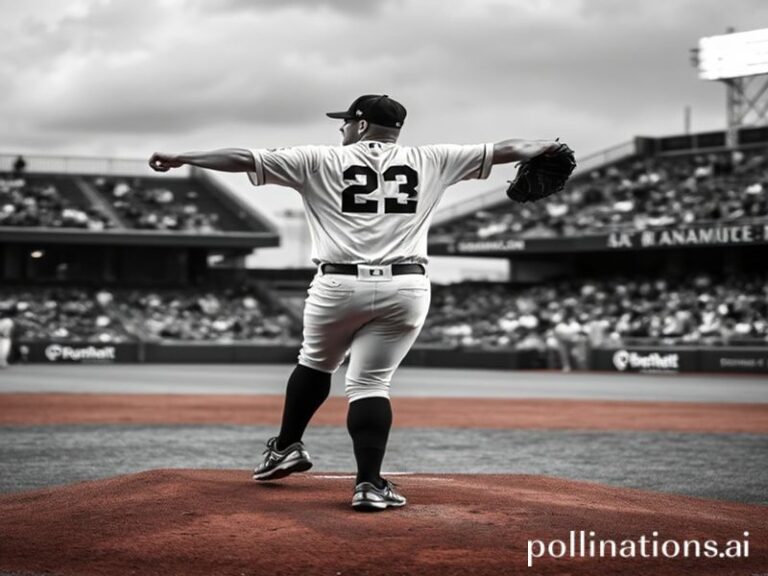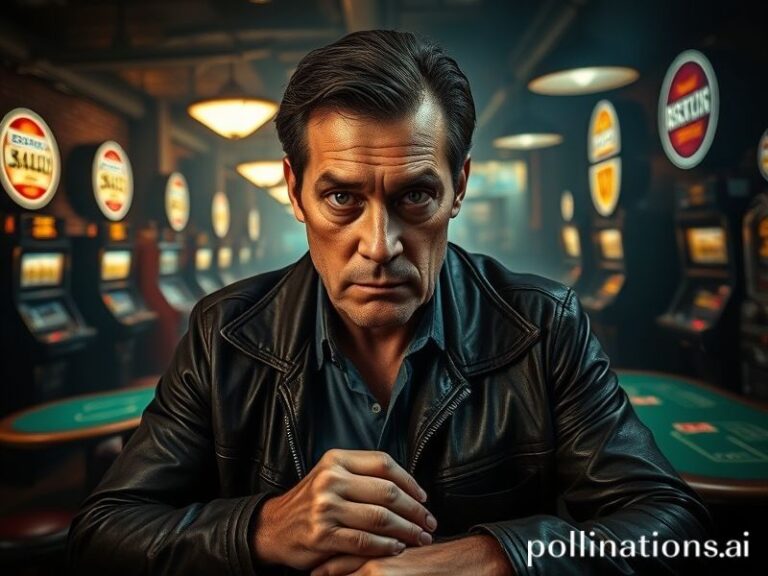Antifa Goes Global: How One Four-Letter Word Became the World’s Favorite Political Punching Bag
Antifa: A Four-Letter Word the Whole World Loves to Mispronounce
By Dave’s Locker | Global Affairs Desk
PARIS—If history has taught us anything, it’s that nothing travels quite as badly as a local street fight. And yet, the brand-name “antifa”—a portmanteau so efficient it could have been cooked up by a German tax accountant—has managed to sprint across borders faster than a Russian oligarch’s yacht. One moment it’s a loose constellation of German punks hurling paving stones at neo-Nazis in the 1980s; the next it’s a bogeyman invoked by Brazilian presidents, Turkish ministers, and that one uncle in Ohio who still thinks Wi-Fi is a mind-control plot.
The international game of telephone began, predictably, in the United States. During the summer of 2020, as American streets turned into open-plan sociology seminars, the White House discovered it could save syllables by blaming everything on “antifa.” Within weeks, copycat accusations erupted worldwide: Chilean students demanding pension reform? Antifa. Nigerian youths protesting police brutality? Obviously antifa on holiday. French villagers resisting a new mega-basin? You guessed it—those baguette-wielding anarchists had clearly graduated from the same Zoom academy of global subversion.
Europe, birthplace of the original Antifaschistische Aktion, now watches its unruly offspring stumble around the geopolitical playground like a drunken exchange student. In Greece, where anarchists have been perfecting the Molotov since the cradle of democracy was still in diapers, antifa is both ancestral memory and contemporary scapegoat. Meanwhile, Germany—ever the meticulous host—has seen its Verfassungsschutz spy agency spend taxpayer euros trying to decide whether “antifa” is an organization, a mood, or just what happens when you mix Jägermeister with existential dread.
Asia has proved equally creative. Japan, a country where even the yakuza have business cards, has somehow birthed “antifa” Twitter accounts devoted to yelling at Internet nationalists in impeccable keigo. In Hong Kong, protesters who once waved American flags now find themselves labeled “antifa” by state media, a plot twist that must confuse both Beijing and Portland equally. Across the border, Chinese propagandists have helpfully clarified that antifa is funded by the CIA, the Freemasons, and, for extra spice, the Dalai Lama—because nothing says covert ops like a celibate monk in red robes.
The global South isn’t missing the party. South African shack-dwellers resisting evictions are condemned as “antifa” by local politicians whose grasp of ideology is matched only by their grasp of electricity provision. In Colombia, urban youth who spray “ACAB” on riot shields are told they’re importing U.S. culture wars, as though anti-police sentiment were as novel as pumpkin-spice lattes. Even war-torn Sudan has witnessed Facebook rumors that the same mysterious antifa buses seen in Minneapolis have now been spotted cruising Khartoum—presumably with better air-conditioning.
Why does this four-letter Rorschach test spread like athlete’s foot in a hostel shower? Because “antifa” is the perfect political inkblot: a blank canvas onto which every government, pundit, or Telegram-addled uncle can project their own fever dream of disorder. It’s cheaper than foreign policy, faster than census data, and infinitely more clickable. In an age when nuance is paywalled, “antifa” is open-source dread—downloadable in 40 languages, DRM-free.
The punch line, of course, is that actual anti-fascist activists—those stubborn romantics who still read history books without the pictures—remain as fragmented as ever. They can’t even agree on a logo (is it the two red flags, the circle-A, or just a black hoodie hung up to dry?). But coherence is beside the point. In the global marketplace of fear, a blurry silhouette sells better than a membership card.
So here we are: a planet where a century-old antifascist symbol can be weaponized by fascists and antifascists alike, then memed into oblivion by teenagers who think Hitler was a brand of energy drink. The next time you see a riot clip captioned “antifa,” remember you’re not watching politics—you’re watching a crowdsourced Netflix pilot nobody asked for.
In the end, perhaps the most international thing about antifa is its passport: forged in crisis, stamped by paranoia, and valid in every language except nuance. Welcome to the world tour; please keep your hands inside the burning cop car at all times.

